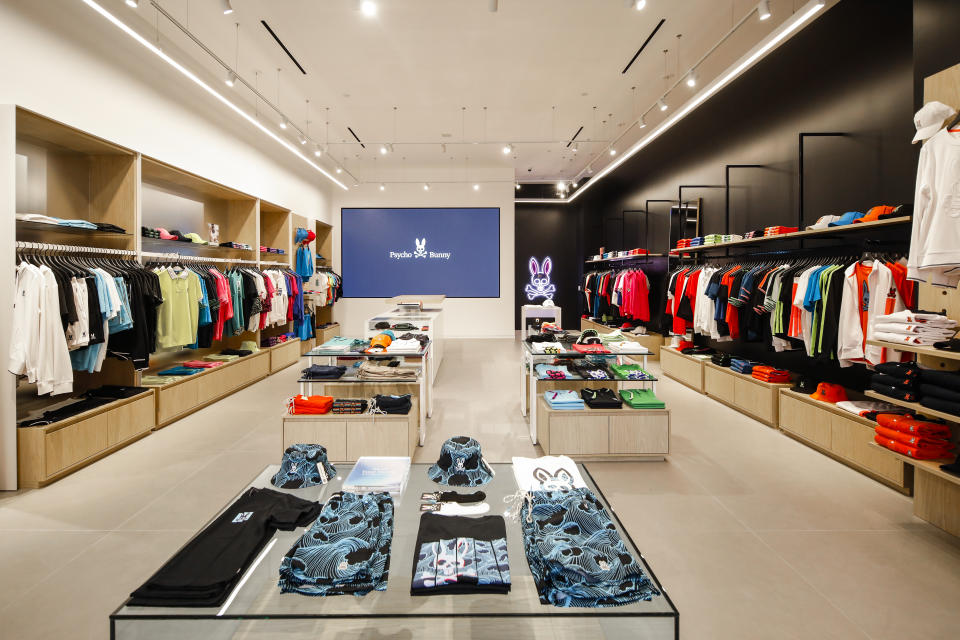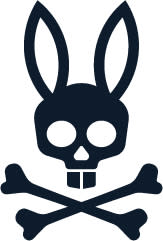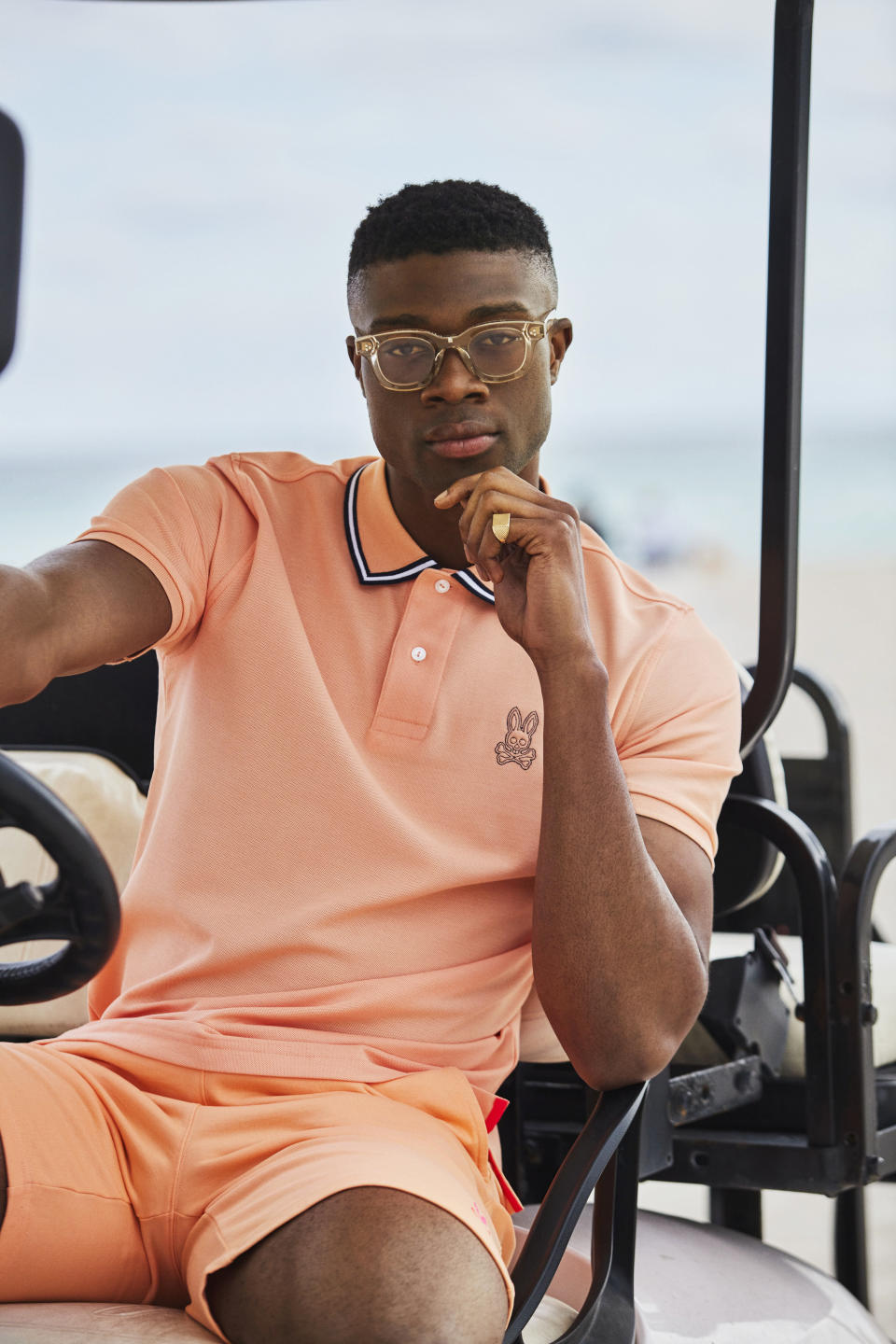Psycho Bunny Rolling Out Retail Under New Owners

If he had his druthers, Alen Brandman would prefer to stay in the shadows. But his enthusiasm about the growth opportunities for Psycho Bunny have prompted him to step out into the light.
Brandman is the chief executive officer of Thread Collective, a Montreal-based business that started out as a children’s denim manufacturer but now produces apparel under license for a large number of brands including Bebe, Hurley, Ellen Tracy and Pajar.
More from WWD
Why the Fiorucci Store Was the Mother of All Retail Concepts
Unites States Retail in the Aftermath of Police Brutality Protests
Brandman was the outerwear licensee for Psycho Bunny, a menswear brand created by Robert Godley in 2005 that has become known for its slightly maniacal logo of a rabbit with pink ears and its teeth hanging over a skull-and-crossbones.
Godley, a U.K. native whose apparel industry background includes Drake’s of London and Turnbull & Asser, initially teamed with Robert Godman, a neckwear industry manufacturer, to build a brand under the Psycho Bunny name.

RENEE CASCIA
They experienced success early on as the high-quality polo shirts with the innovative logo quickly found fans. But by around 2013, Psycho Bunny began to experience operational issues and internal struggles.
Brandman, who attended Harvard Business School and had created a successful, profitable business with Thread Collective, offered to step in. He took over control of all production in 2016 and became the third equity partner in the brand alongside Godley and Goldman. The next year, he purchased 100 percent of the operating rights and 50 percent of the intellectual property rights of the brand.
Last year, Brandman acquired full ownership of Psycho Bunny, and that’s when Godley and Goldman exited the business. “They walked away happy,” Brandman said.
Earlier this year, Brandman brought private investment firm BBRC, led by retail executive Brett Blundy and Bertrand Cesvet, the former CEO and chairman of Sid Lee, a commercial creativity firm, on board as a minority partner. Blundy is a billionaire Australian businessman whose retail holdings have included Diva and Lovisa, fashion jewelry stores, as well as Bras n Things.
“Brett made his fortune in retail because of his operational excellence,” Brandman said. “When I met him, I said, ‘I need that guy.’”
Today, Brandman, who said he’s “a product guy from my toes to the top of my head,” says Blundy is available to counsel him on Psycho Bunny’s aggressive retail rollout in the U.S. and overseas and any other issues he may face growing the brand.

Psycho Bunny is Thread Collective’s only owned brand. The company previously owned Sunice, a ski and golf label, but sold that to focus its efforts on Psycho Bunny. “I always dreamed of owning a brand,” he said, “and we thought this was an unbelievable opportunity. It’s a feel-good brand that evokes emotion — and it’s cool.”
In the past six or so years, the brand has expanded beyond its signature polo shirts to offer golf apparel, casual shirts, shorts, swimwear, underwear, loungewear, fleece, accessories and boys’ wear.
“We had six people within Thread Collective working on the brand when we started,” he said. “Now there are more than 130 people working exclusively on Psycho Bunny with another 500 in the field.”
It has offices in New York as well as Montreal and Brandman is the global CEO. “We say the brand was born in New York but is living in Montreal,” he said with a laugh.
It’s also living in a number of high-profile locations around the U.S. The company’s North American retail footprint has almost tripled in the past two years to 31 stores. It opened its first store in Aventura at the end of 2018.
Brandman said at the start of the pandemic, Psycho Bunny had three stores and the majority of its business was wholesale. But once the health crisis caused stores to close around the world, Brandman went into overdrive. Believing that retail would eventually come back, he began working with all the top developers including Simon, Brookfield and others to scoop up as many locations as he could.
He’s not stopping there. The plan is to more than double the existing number of stores to 70 or more in the near future and move into his home country of Canada, where he will open four stores.
“We’re making a full-court press to open stores,” he said. And despite the din of the “detractors” who said online purchasing will replace brick-and-mortar retail, the success of the existing Psycho Bunny stores has proven them wrong.
“We’re so colorful and fun,” he said. “Who wouldn’t want to embrace that, especially today?”
He said locations are chosen carefully to ensure they’re right for the brand. “As long as it’s the right environment, we’ll be there,” he said. But he admitted that finding those sites is getting harder. “I just visited 23 malls and said ‘no’ to 17 of them,” he said.

Outside of North America, he has a licensing deal with Itochu, which operates 17 freestanding stores and in-store shops in Japan, and a franchise partner in Latin America, where it operates 30 stores.
Going forward, Brandman said the plan is to operate stores directly rather than through franchises. On his wish list is to “be in all of Europe,” he said, where he believes there is “massive opportunity.”
Because of the recent retail rollout, direct-to-consumer, which includes the online site as well as the stores, now accounts for 70 percent of total sales, with wholesale making up the remainder.
Polo shirts are still the most popular item, accounting for between 28 and 31 percent of sales. T-shirts are another 28 percent, followed by the other products.
Overall sales were $40 million in 2019 and while Brandman declined to provide a current figure, the company said volume has tripled over the last year, with e-commerce sales doubling in 2021 over 2020.
Earlier this month, the company named Franklin Benjamin Elman its first creative director. Elman has more than 18 years of experience working as a design director and creative consultant at European luxury fashion brands including Trigère, Dsquared2, Rick Owens, Jil Sander, and Dior. In addition to Elman, the brand added Carm Sivers as vice president of sales and store operations. She previously worked at American Eagle Outfitters.
As it expands its retail footprint and staff, Brandman is optimistic that Psycho Bunny can continue along its growth trajectory. “We’ve got a long way to go,” he said.
Sign up for WWD's Newsletter. For the latest news, follow us on Twitter, Facebook, and Instagram.

